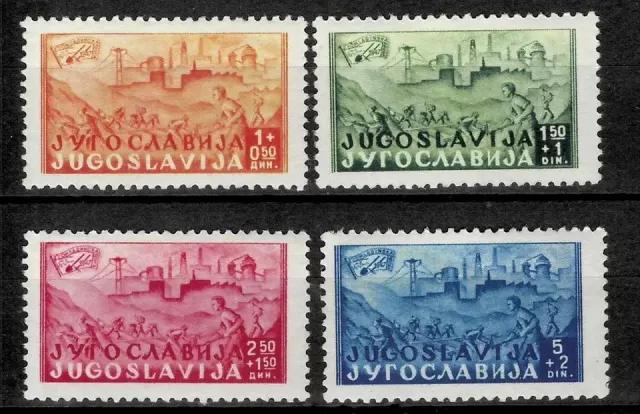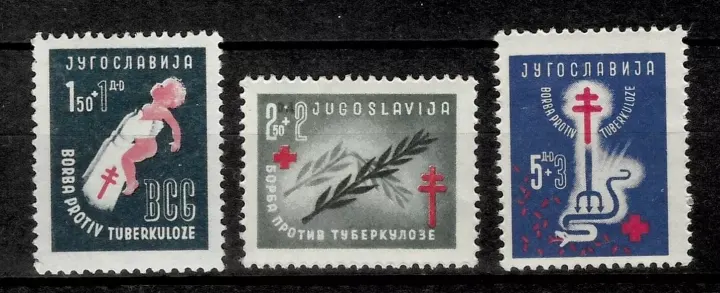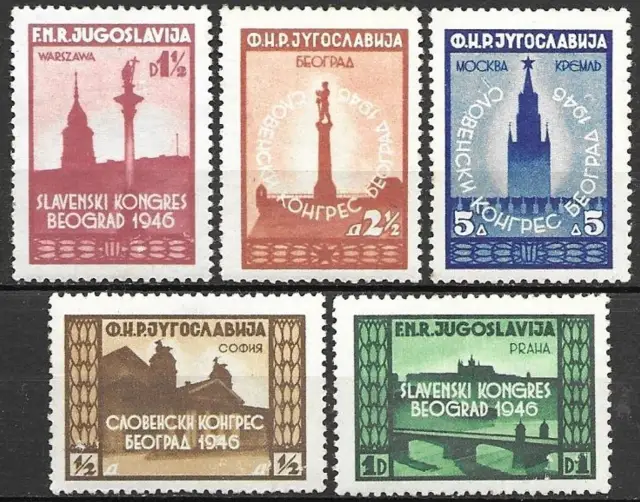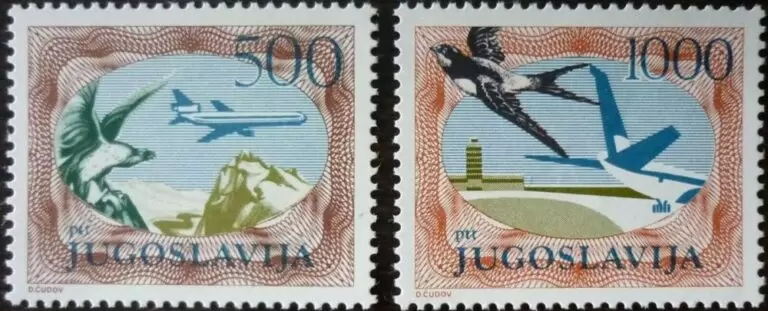Yugoslavia stamps year 1948 Yugoslav Academy of Arts and Sciences set MNH**
In 1948, Yugoslavia underwent a significant political transformation marked by the Tito-Stalin split, which led to the onset of the Informbiro period. This era was characterized by a decisive break from the Soviet Union and its influence, fundamentally altering Yugoslavia’s domestic and foreign policies.
Background of the Informbiro Period
The Informbiro period began after Yugoslav leader Josip Broz Tito rejected Stalin’s directives, resulting in Yugoslavia’s expulsion from the Cominform (Communist Information Bureau) in June 1948. This split was unprecedented as it was one of the first instances where a communist country openly defied Soviet authority, leading to severe repercussions within Yugoslavia, including political purges and repression against perceived opponents. The regime’s response included imprisonment and forced labor for thousands, with estimates suggesting that between 100 to 400 individuals were killed or seriously wounded during this tumultuous time.
Impact on Arts and Sciences
The political climate significantly influenced the cultural landscape of Yugoslavia. Artists and intellectuals were encouraged to draw inspiration from the wartime efforts of the Yugoslav Partisans, which shaped contemporary art and literature1. The Yugoslav Academy of Arts and Sciences played a crucial role during this period by promoting artistic expression that aligned with the new ideological direction under Tito’s leadership. This institution became instrumental in fostering a unique cultural identity that sought to balance regional particularisms with broader national narratives.
Economic Challenges and Reforms
The rift with the Soviet Union also led to economic challenges, as Yugoslavia had previously relied on trade with Soviet allies. In response to these pressures, Tito initiated reforms that emphasized socialist self-management and decentralization, which were formalized through constitutional amendments in subsequent years. The U.S. recognized this geopolitical shift as an opportunity to weaken the Eastern Bloc and began providing economic aid to Yugoslavia, further solidifying its non-aligned stance in the Cold War context










